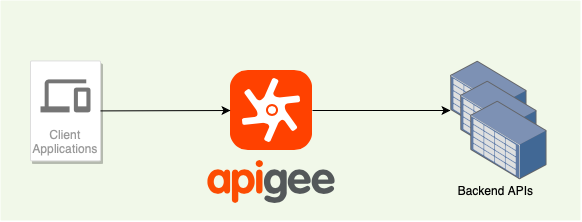.png)
What is the Difference Between API and Apigee?
Understanding the difference between an API (Application Programming Interface) and Apigee, a leading API management platform, is crucial for modern software development. APIs allow different software systems to communicate seamlessly, enabling data exchange and functionality sharing. Apigee, on the other hand, provides a suite of tools to manage, secure, and analyze these interactions, enhancing the overall effectiveness and security of APIs.
This article explores their distinct roles and functionalities, highlighting how APIs and Apigee complement each other within the tech ecosystem.
Overview
APIs enable communication between software applications by providing a set of rules and protocols that facilitate interaction. They are the backbone of modern applications, allowing disparate systems to work together seamlessly.
On the other hand, Apigee is a comprehensive platform designed to manage and scale APIs. It offers tools for analytics, security, and monetization, making it easier for organizations to harness the full potential of their APIs through apigee API management services. Techzert specializes in providing these services, ensuring businesses can implement and manage their APIs effectively. Here’s a closer look at both:
- APIs facilitate communication between software applications, enabling them to share data and functionalities.
- Apigee provides management and scaling tools for APIs, ensuring they operate efficiently and securely.
Key features of Apigee include analytics for performance monitoring, security measures to protect data, and monetization strategies to generate revenue from API usage.
What is an API?

APIs are crucial for enabling different software systems to communicate. They define how requests for data or functionality should be made and what responses can be expected. By abstracting complex backend processes, APIs allow developers to integrate and build upon existing services without needing to understand their inner workings.
Key Benefits of APIs:
- Interoperability: APIs connect diverse systems, enhancing collaboration and data sharing.
- Flexibility: Developers can select which functionalities to integrate, allowing for customized solutions tailored to business needs.
What is Apigee?

Apigee is a full lifecycle API management platform developed by Google. It enables businesses to design, secure, deploy, monitor, and scale APIs effectively. Apigee is particularly useful for companies looking to enhance their digital transformation efforts by providing robust tools for API analytics, security, and operations.
Techzert offers apigee implementation services to help organizations fully leverage the capabilities of the Apigee platform, ensuring a smooth and efficient API management process.
Key Features of Apigee:
- API Design and Prototyping: Apigee offers tools for designing and prototyping APIs to ensure they meet business requirements and are aligned with industry standards.
- API Security: The platform provides robust security features, including OAuth, API keys, and threat protection, to safeguard APIs from unauthorized access and vulnerabilities.
- API Analytics: Apigee delivers detailed analytics to monitor API performance and usage, enabling businesses to make data-driven decisions and optimize their API strategies.
- API Gateway: It acts as a gateway for managing API traffic, ensuring reliability and scalability, which is critical for handling varying loads and maintaining service availability.
- Developer Portal: Apigee includes a customizable developer portal to facilitate API adoption and collaboration among developers, allowing them to easily access documentation, test APIs, and engage with the API community.
Key Differences Between APIs and Apigee
|
Aspect |
API (Application Programming Interface) |
Apigee |
|
Definition |
A set of rules and protocols for building and interacting with software applications. |
A comprehensive API management platform developed by Google. |
|
Purpose |
Enables communication between software applications. |
Manages, secures, and analyzes APIs throughout their lifecycle. |
|
Focus |
Facilitates integration and data exchange between different systems. |
Provides tools for monitoring, security, and optimization of APIs. |
|
Functionality |
Defines how requests and responses are structured for data interaction. |
Offers a suite of features including analytics, security, and traffic management. |
|
User Accessibility |
Requires technical knowledge to create and manage APIs. |
Provides a user-friendly interface for both developers and non-developers. |
|
Key Features |
Basic communication framework without management tools. |
Advanced features such as API design, prototyping, security measures, and a developer portal. |
|
Management Capabilities |
Limited to the API's inherent functionality. |
Full lifecycle management, including deployment, monitoring, and monetization. |
|
Target Users |
Developers looking to integrate various functionalities. |
Organizations seeking to optimize their API strategies and enhance digital transformation. |
Conclusion
In conclusion, understanding the difference between an API and Apigee is crucial for leveraging their full potential in modern software development. An API, or Application Programming Interface, serves as a set of rules and protocols for building and interacting with software applications. It allows different software systems to communicate with each other, making it an essential tool for developers aiming to integrate various functionalities and services seamlessly.
On the other hand, Apigee is a comprehensive API management platform that provides tools for designing, securing, deploying, and analyzing APIs. Its advanced features—such as traffic management, security, analytics, and monetization—make it an invaluable resource for businesses looking to optimize their API strategies.
With Techzert as your trusted partner, leveraging apigee implementation services becomes more accessible, allowing your organization to benefit from enhanced API management and utilization. By effectively utilizing both APIs and Apigee, organizations can enhance their digital transformation efforts, improve operational efficiency, and foster innovation in their services.
Talk to Our Expert
Our Services
ISO 20022 (MT to MX) Adoption & Migration
FTM For Corporate Payment Services
IBM Cloud Park For Integration (CP4i)
